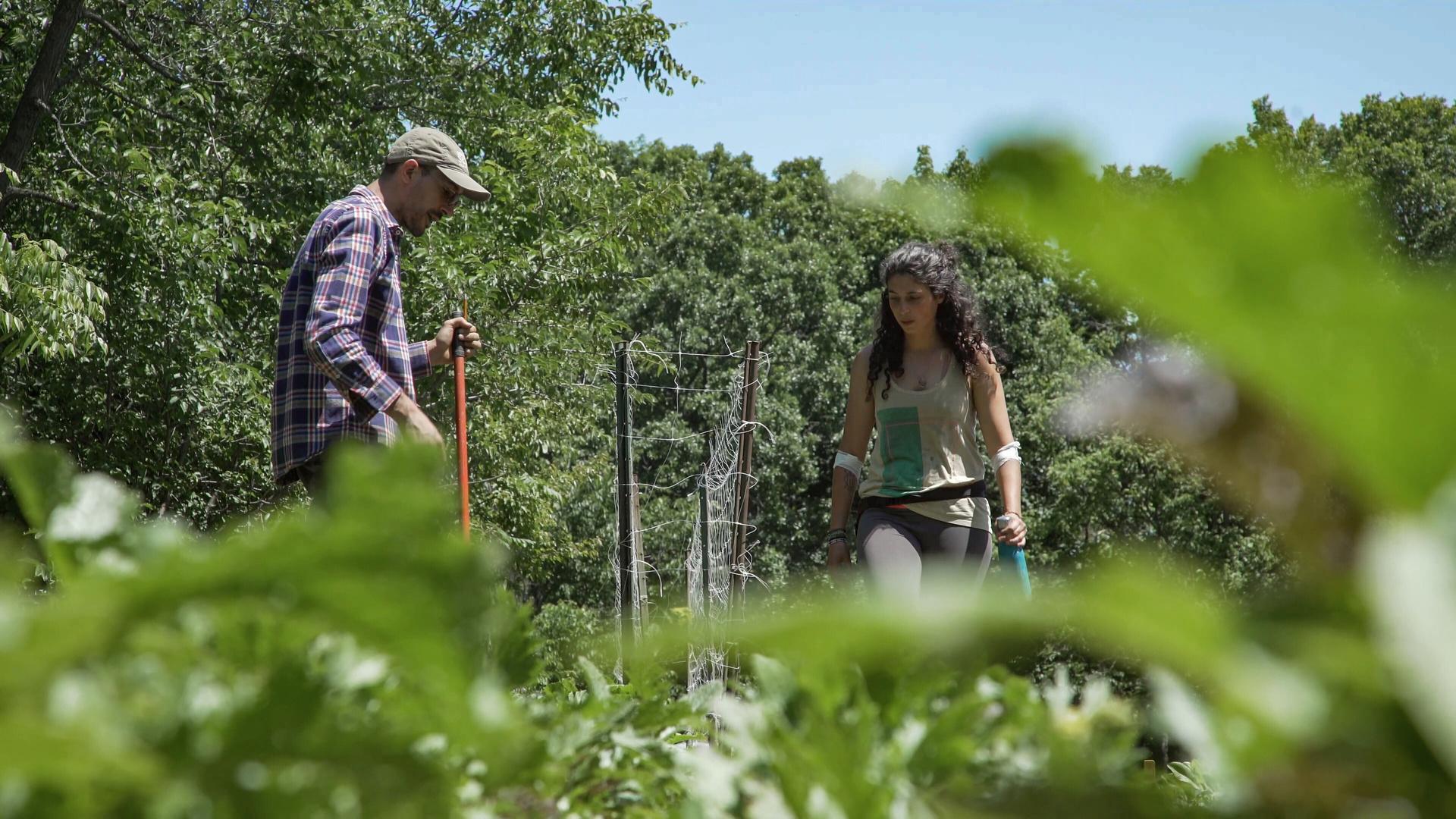
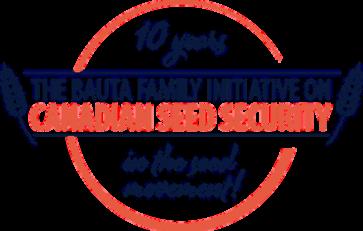

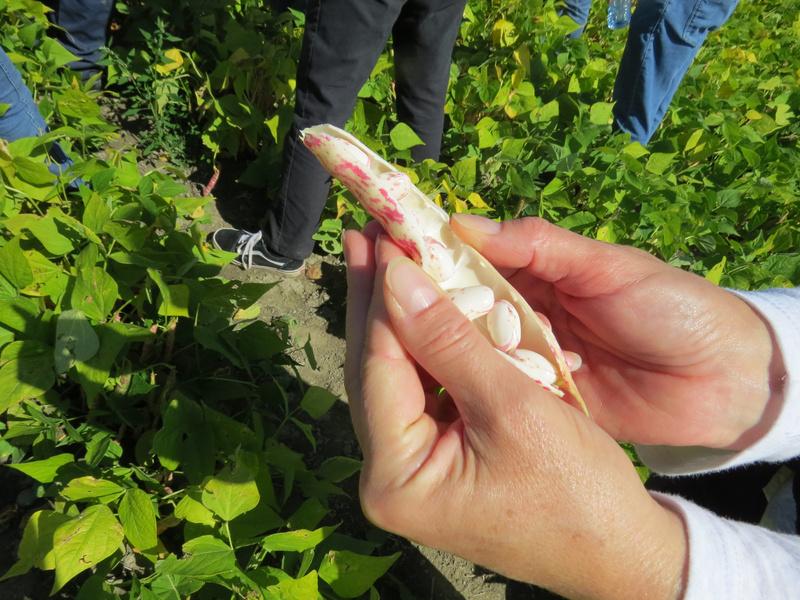
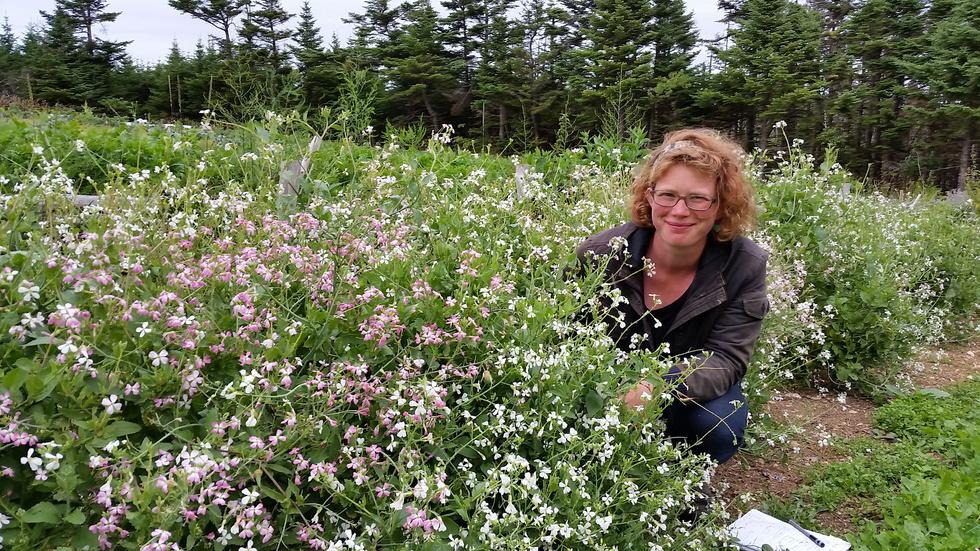
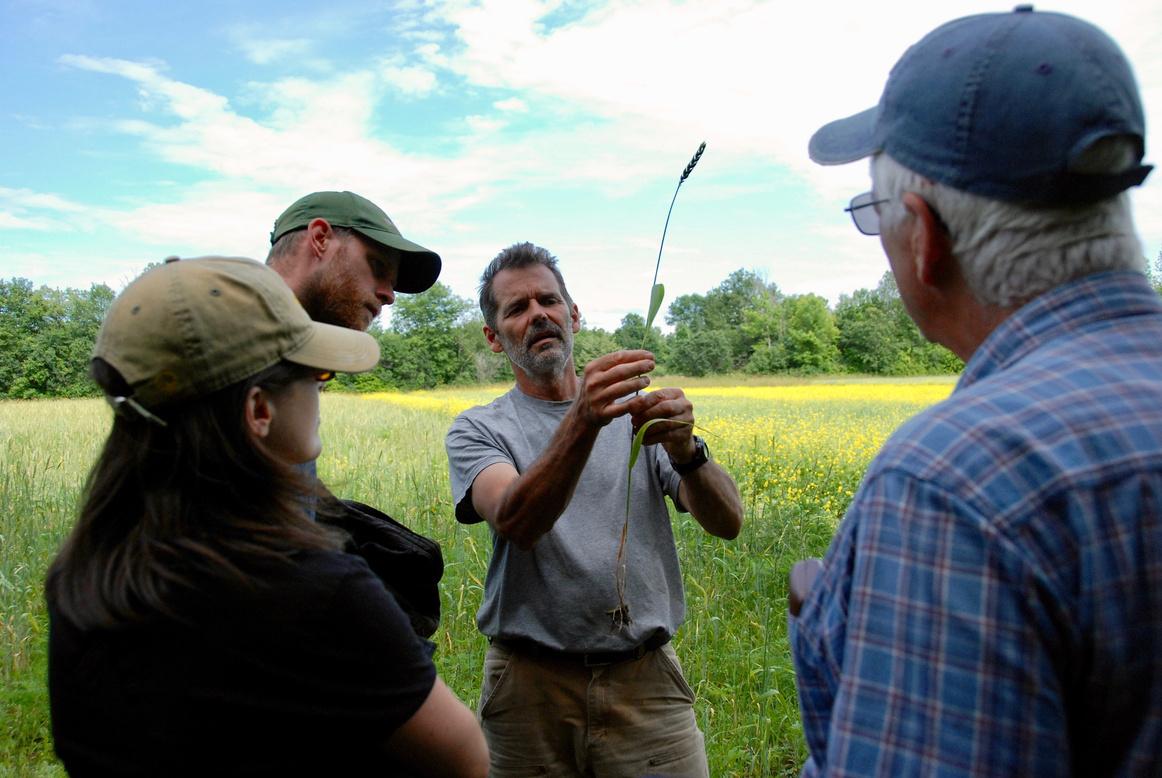
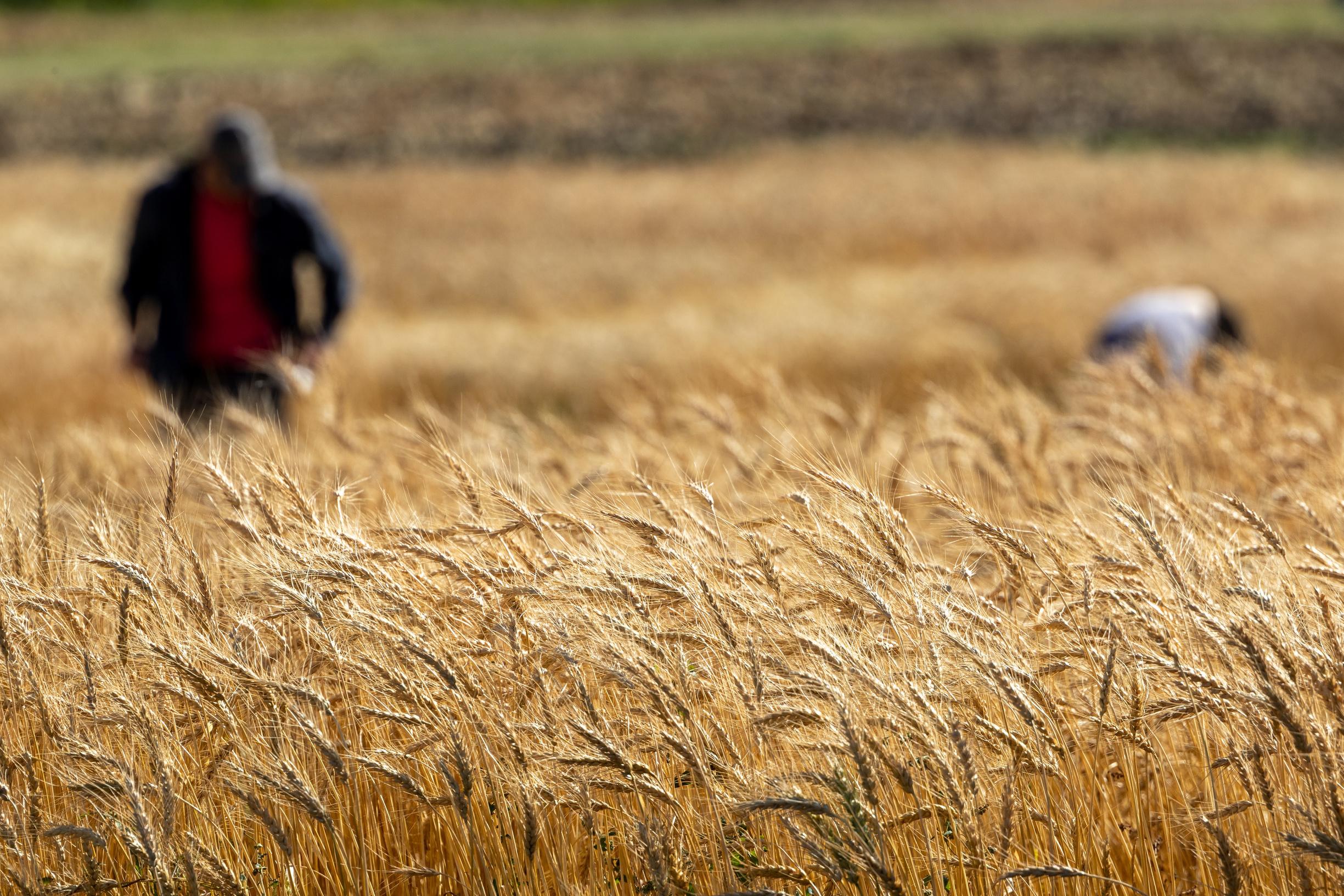








It began as a love for a loaf of bread. This simple pleasure led Gretchen Bauta to wonder about what goes into every slice: the baking, the farming, and - like following a trail of breadcrumbs - back to the seeds that grow the wheat. The further she looked into seeds, the more she realized that good seeds were essential to a secure and nutritious food supply but Canada was losing them. An increasing homogenization of the food system meant that Canada was growing fewer varieties and primarily for large-scale farming operations. “It struck me as
vitally important to maintain the biodiversity which was being lost at a tremendous rate in all directions,” said Mrs. Bauta.
So that’s what she did. Her visionary support and funding through the Weston Family Foundation led to The Bauta Family Initiative on Canadian Seed Security. Today, after a decade, the program has advanced seed diversity and security in Canada by building a network of farmers and researchers from across the country to exchange information, share best practices, and develop seed security together. We are grateful to Gretchen Bauta, for her championing of a secure and thriving Canadian seed system. We’re also grateful for the unparalleled support received from many national foundations, the federal government, and the thousands of Canadians who, through their generous donations, have steadfastly advocated for this initiative.
“
It struck me as vitally important to maintain the biodiversity which was being lost at a tremendous rate in all directions.” - Gretchen Bauta
As we commemorate the 10-year anniversary of The Bauta Family Initiative on Canadian Seed Security, I am filled with gratitude and pride for the incredible journey we have undertaken together. It is a momentous occasion that allows us to reflect on the impact we've made, the growth we've witnessed, and the seeds of change we've sown.
Over the past decade, The Bauta Family Initiative has been a beacon of inspiration, fostering growth and momentum in Canada's seed movement As we explore the pages of our collective story, we see tangible evidence of the transformative power of seeds in the hands of our dedicated farmers. The diversity and resilience of our agricultural landscape have flourished, thanks to your unwavering support and the hard work of countless individuals committed to building a sustainable future
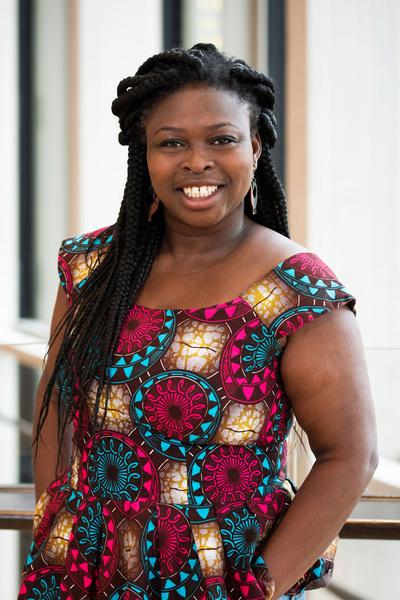
Looking ahead to the next 10 years, our vision is resolute: to continue the upward trajectory of our seed movement. We aim to provide compelling opportunities to the diverse farmers of Canada, ensuring they have access to high-quality, climate-resilient seeds. The establishment of regional seed systems remains at the forefront of our mission, and we are committed to supporting all those who contribute to this noble cause
As we celebrate this milestone, let us recommit ourselves to the principles that guide us. Together, we have the power to nurture a movement that transcends generations, ensuring a legacy of sustainable agriculture and resilient seed systems in Canada for years to come.
With gratitude and anticipation,
 Leticia Ama Deawuo Executive Director, SeedChange
Leticia Ama Deawuo Executive Director, SeedChange
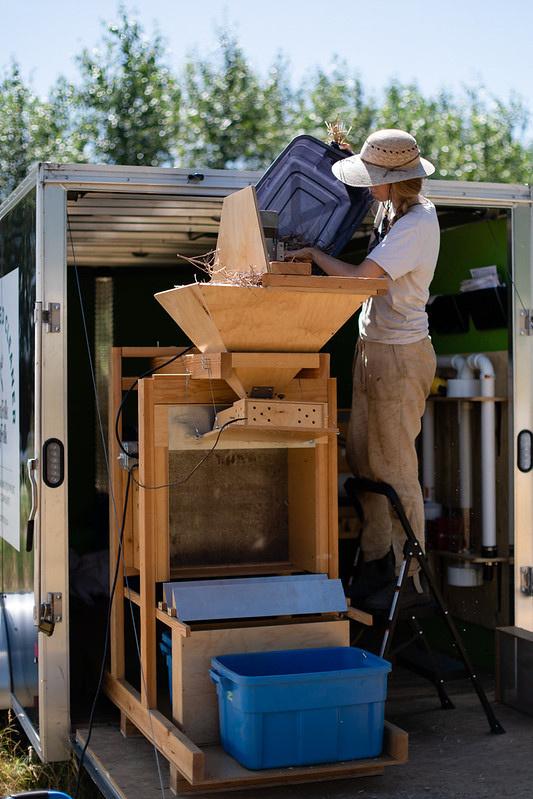 A farmer showcasing how to use a stationary thresher to clean radish seed at one of our seed demonstration sites in BC.
Photo Credit: David Catzel
A farmer showcasing how to use a stationary thresher to clean radish seed at one of our seed demonstration sites in BC.
Photo Credit: David Catzel
Security was launched in 2013 to support Canadian farmers to increase the quality, quantity, and diversity of seeds they save, adapt, and breed. We celebrate ten years of growth by sharing stories, on the following pages, of the incredible work in our seed movement, thanks to the ingenuity, commitment, and passion of farmers who care about seed.
Nationally coordinated and regionally driven, this program is delivered in partnership with organizations across the country: Seeds of Diversity, Farm Folk City Folk, Organic Alberta, Ecological Farmers Association of Ontario, and the Atlantic Canadian Organic Regional Network.
In Québec, SeedChange operates as Sème l'avenir, working closely with a diversity of agricultural organizations in the province.
Virtually all the food we eat begins with the planting of a seed. Seeds are the beginning and the end of the agricultural cycle, the foundation of our food supply, and one of the best tools we have to adapt to climate change.
Globally, we have lost 75% of agricultural biodiversity in the last 100 years. Just when we need it the most, diversity is narrowing at alarming rates.
Seeds are packets of potential: they are responsible for flavour, nutrition, colour, and shape of our food, but they are also responsible for how a plant takes up nutrients in the soil and responds to diseases, pests, and other stresses.
Climate change is bringing new stresses to farmers’ fields. Preserving, improving, and creating seed diversity is one of the best ways we can help farmers adapt to, and mitigate, these changes. As Canada’s climates change, so too must our approach to food production, starting with seeds.
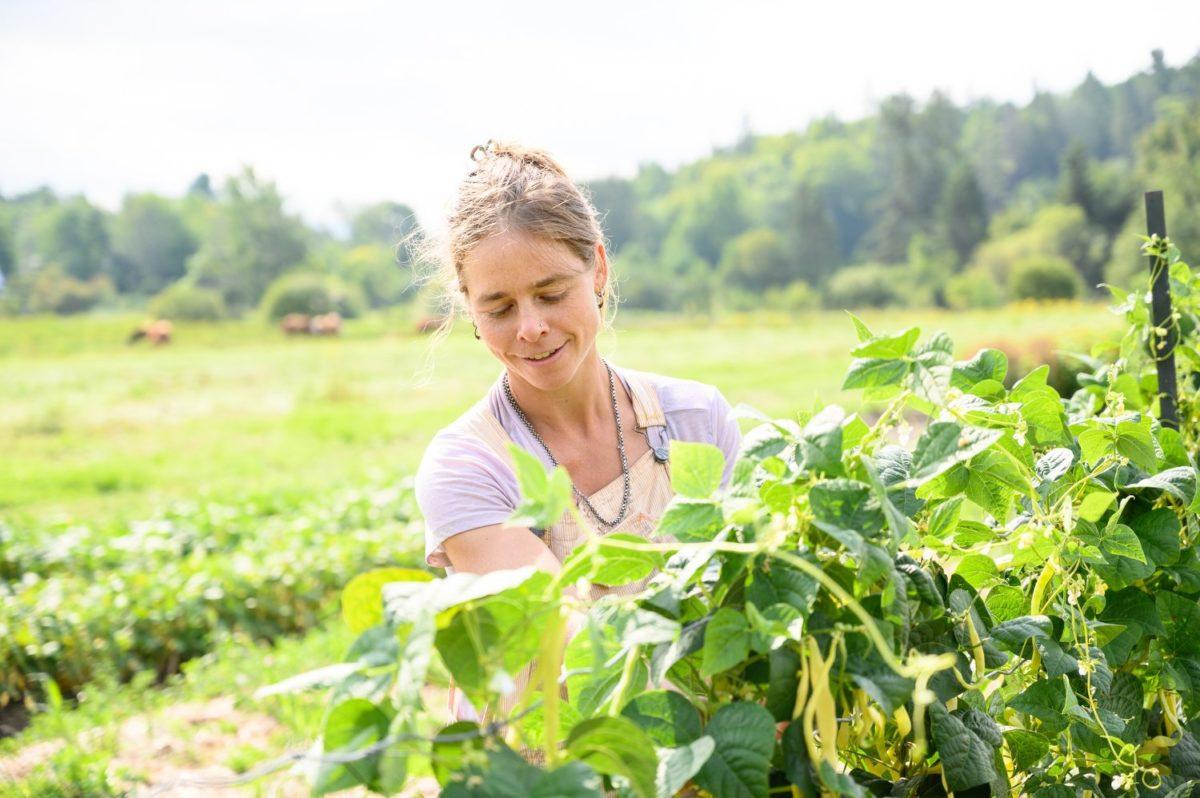
Catherine June Wallenburg manages an acre of land that produces seeds for her company, Northern Seeds. Each season, she selects the best mother plants to improve crops for Outaouais region's soil and weather conditions.
Over three years, Catherine worked on developing a robust yellow bean bush variety that's easier to harvest. Talking with researcher James Myers from Oregon State University, she discovered a genetic variation from the 20th century that led to sturdy, non-fragile neck beans.
With trials and support from SeedChange and CAPÉ, Catherine has successfully made crosses and expanded her bean population.
“
It is immensely rewarding to be part
of a larger network of producers and organizers working together to create a resilient, diverse and community and producerserving agri-food system.”
Catherine June Wallenburg, on-farm with her yellow bean crop, at Northern Seeds.“My hope is for this wheat to not only have a good story, not only have a captive audience or clientele, but that it might become one of the assets that provides resiliency to our farm in the face of climate change.”
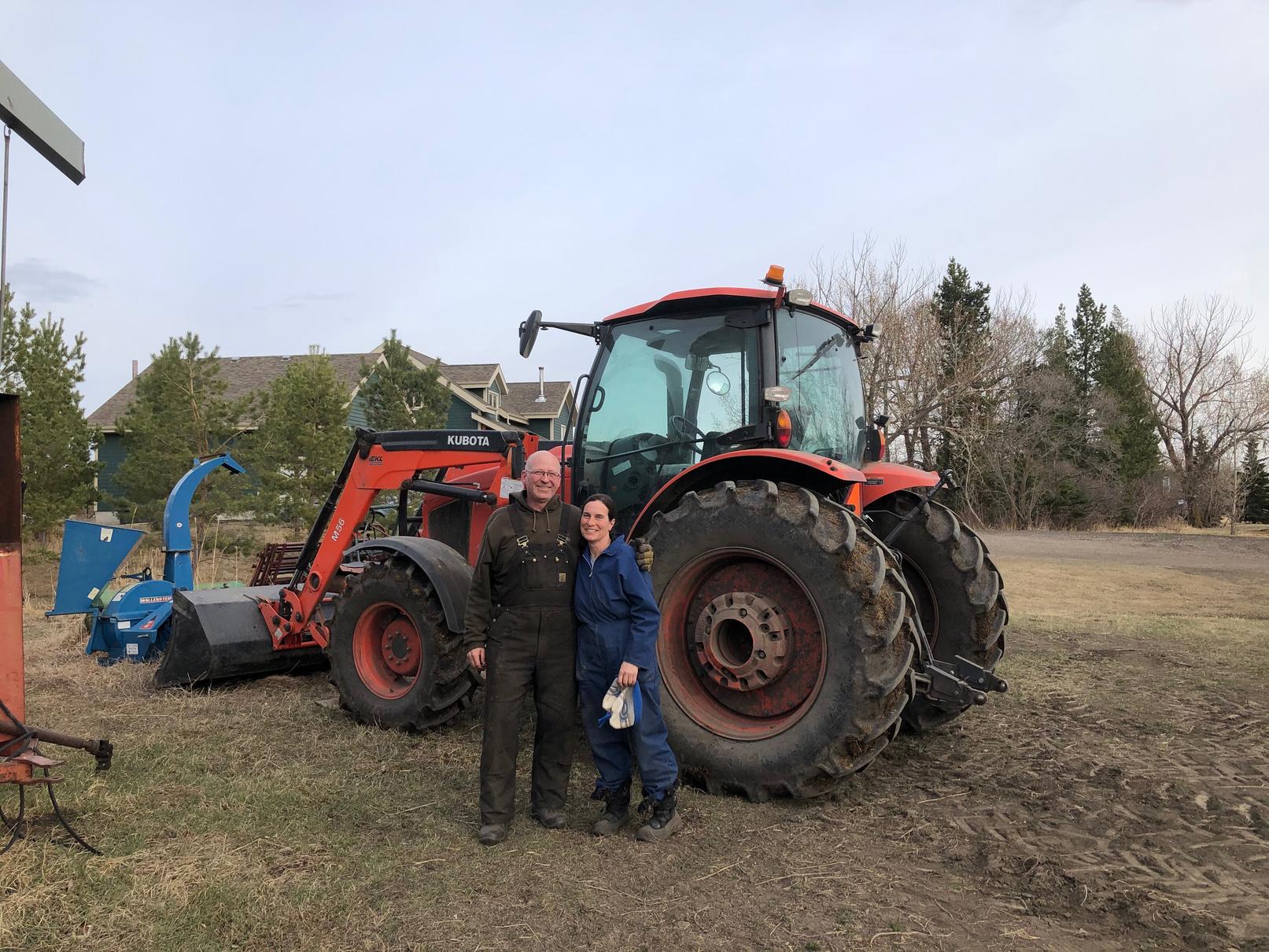
Ward Middleton, an Alberta farmer, has been selecting his own wheat lines for over a decade, through our participatory plant breeding program (PPB) with the University of Manitoba. With 850 acres of land in Sturgeon County, Ward's farm, Midmore Farms, thrives on producing organic wheat, mixed grains, nutraceuticals, and custom grazing partnerships.
Climate change poses formidable challenges, but Ward's vision extends beyond uncertainty. By breeding crops tailored to his farm's needs, he's arming his land against climate's unpredictability.
His Hard Red Spring Wheat line is a testament to resilience – thriving despite heat, drought, and flooding, even outcompeting weeds!
As society shifts towards shorter value chains and sustainable food, his wheat is gaining traction among conscious consumers, bakers, millers, and processors.
His customers embrace the change, seeing the potential to replace older wheat varieties. As his organic wheat market grows, his PPB wheat is set to nourish bodies and communities alike.

For five years, farmers have been trialing carrot varieties on their farms, collecting and sharing data, and evaluating their favourites. But what happens when the best performers are hybrids that you can’t save seed from? You make your own, open-pollinated orange carrot!
CANOVI is the Canadian Organic Vegetable Improvement Project, a five-year collaboration between The Bauta Family Initiative, the University of British Columbia (UBC), and farmers across Canada.
The mission? Strengthening the nation's agroecological vegetable seed sector by developing varieties adapted to diverse regional contexts.
Through on-farm trials, farmers and UBC researchers cultivate various seed varieties, pooling data and evaluating performance.
A highlight is the carrot trials, which sparked a participatory plant breeding project when farmers sought open-pollinated alternatives to favoured hybrids.
CANOVI Orange and CANOVI Fireglow are the newest stars. These vibrant carrots tackle the challenge of reliable, locally-accessible seed varieties. Hybrid uncertainties are replaced by community-grown resilience.
CANOVI isn't just about carrots; it's a movement of like-minded farmers striving for sustainable food systems. Together, they're shaping a future rooted in local needs and food sustainability.
Katie Miller, Phil Simon, and Micaela Colley selecting roots in El Centro, CA, for CANOVI.Rav Singh aims high, focusing on equity, climate resilience, food justice, and seed sovereignty. Her farm, Shade of Miti, established two years ago on rented land in Caledon, specializes in South Asian vegetables sold at local markets in Mississauga, Ontario. Seeds hold a crucial role at Rav’s farm.
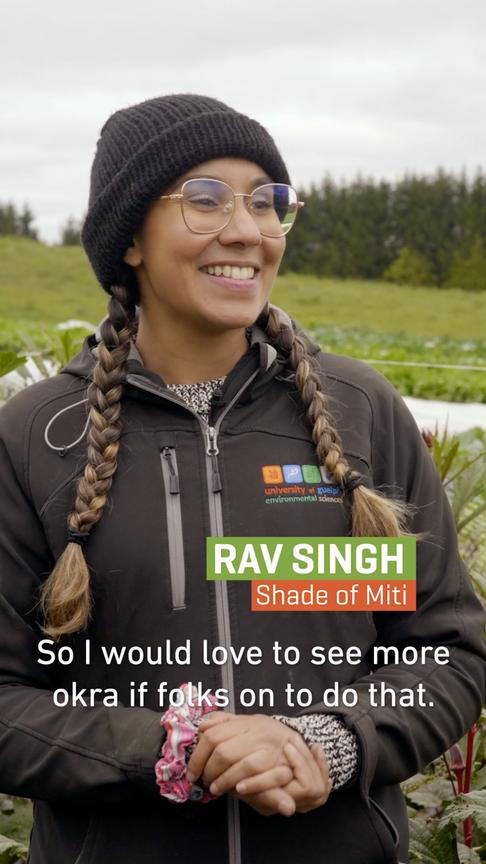
When Rav started, she grew a bit of everything to test demand. In her community, many are newcomers, people of colour, and Black community members. As they sought produce, like tropical fruits, that were unavailable from local farms, it was then that Rav realized that, with so much that can be grown here, it was the perfect opportunity for seed trials. Her top product is okra, where there is high demand, but not enough supply.
In response, Rav is collaborating with the Ecological Farmers Association of Ontario (EFAO) on a variety trial, now involving other Ontario farmers. She hopes this data will guide future okra cultivation and redefine research dynamics.
Rav is also doing her own miniexperiments with ginger, peanuts, and saffron. And she’s not stopping there. Bitter melon and amaranth trials are next on her bucket list. When she’s not trialing veggies, Rav is also engaged in environmental education and advocacy.
“We all know the important role local, small-scale farmers play in our food system. Doing these experiments and crop trials is building that foundation of seed sovereignty, seed holding, seed keeping, and seed sharing that
will help lead us to these bigger things that we're trying to work towards like climate
resilient communities, food sovereignty, and food justice.”
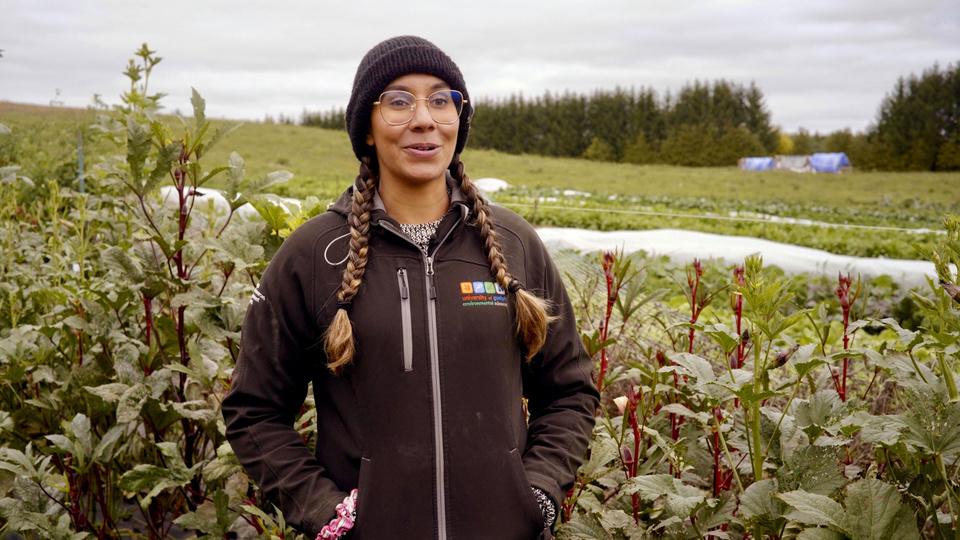
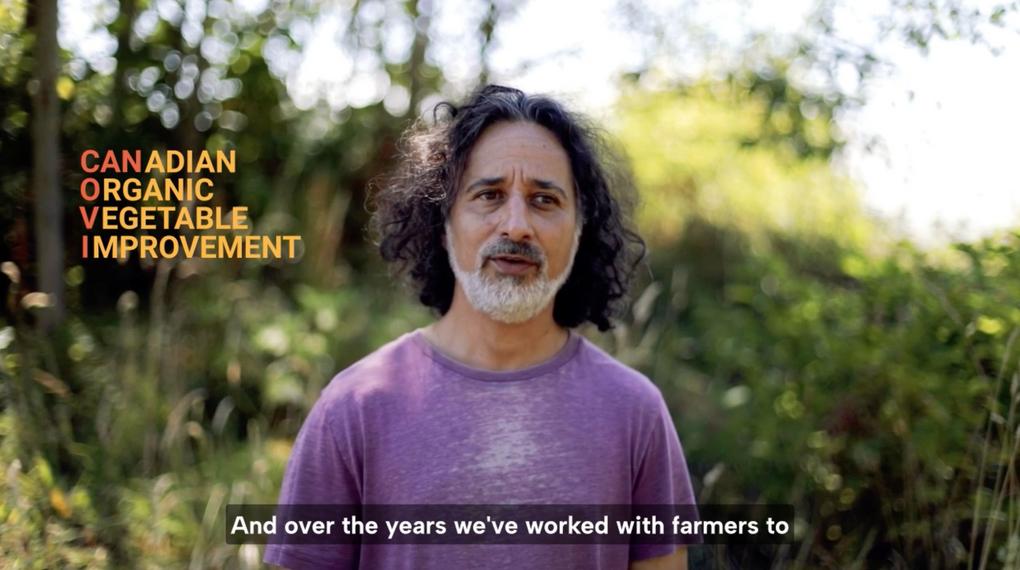
“It’s long term work. It’s not going to be a finished carrot in the next couple of years. But I think we’re working towards more than just a finished variety. We’re working towards a changed way of collaboratively stewarding seeds and breeding new varieties into the future.”
- David Catzel, BC Regional Coordinator
Sarah Crocker is a market gardener and seed saver from Portugal Cove, NL. She runs the Seed to Spoon farm with her husband Adam, where they grow original varieties of vegetables that suit their short, wet, and grey growing season.
Sarah is fascinated by the diversity of seeds and loves to share them with others through a local seed library that she established with the help of The Bauta Family Initiative, a SeedChange program. She is also a past board member at SeedChange, appreciating its mission to support agro-ecological growing around the world through a feminist lens.
Sarah is always looking for new seeds to explore, such as cold-tolerant legumes and green-shouldered rutabaga (“turnips”). She has been growing and saving a batch of Painted Mountain Flour Corn for the past five growing seasons.
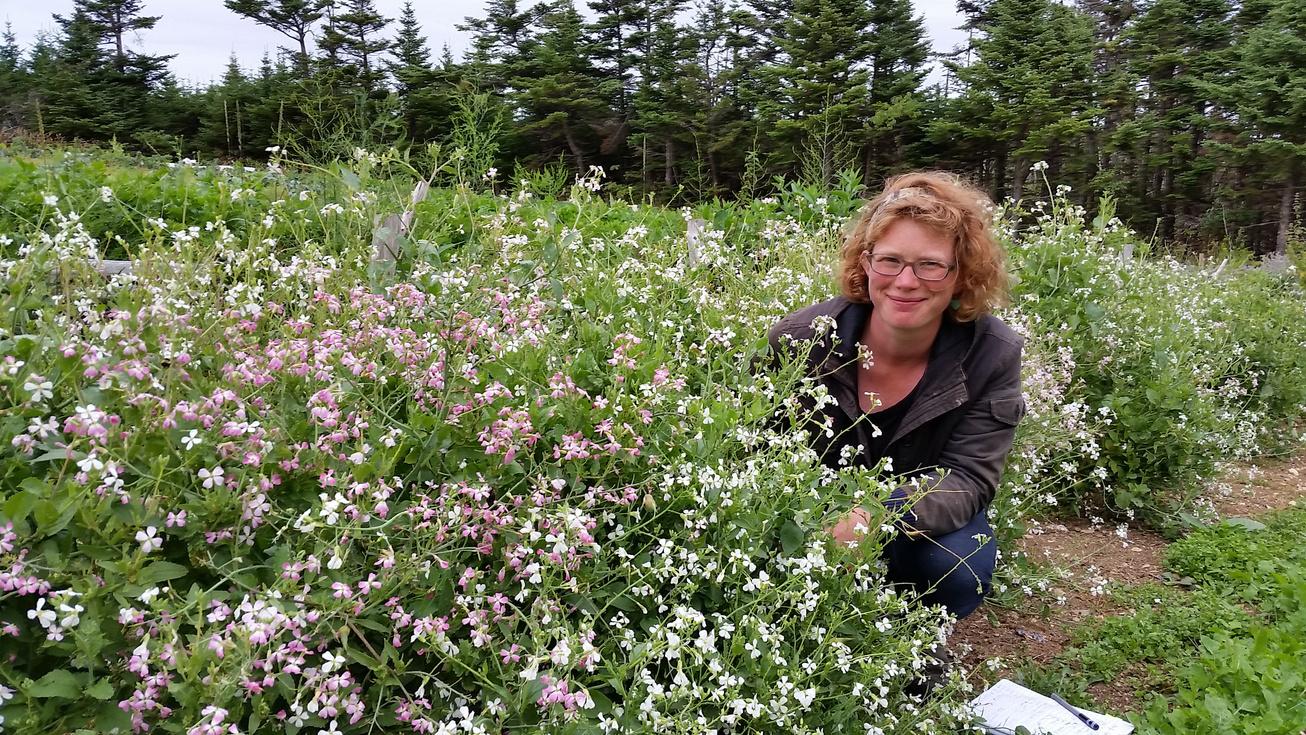
“When you start getting into seed saving, it's very quickly a very generous pursuit.”
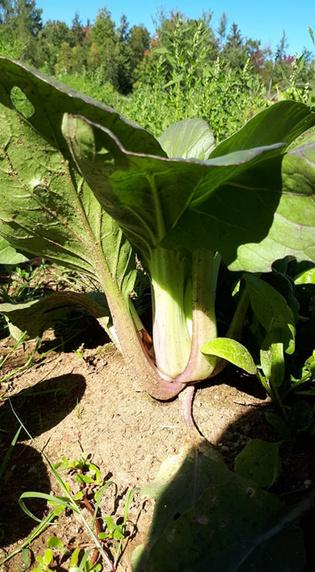
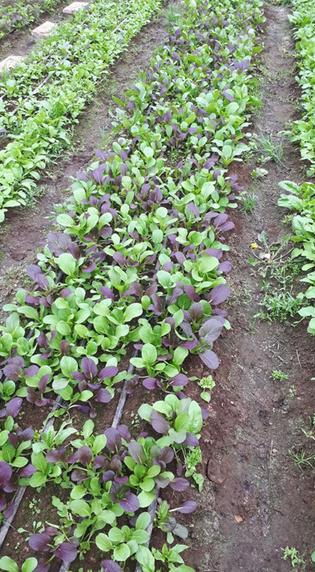
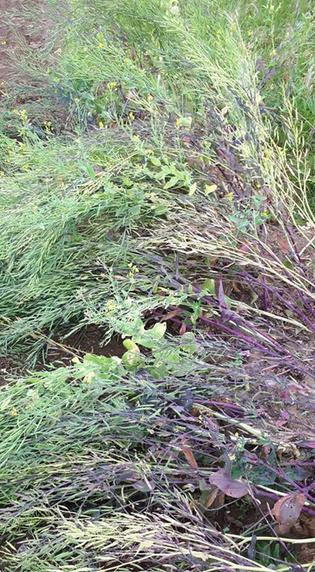
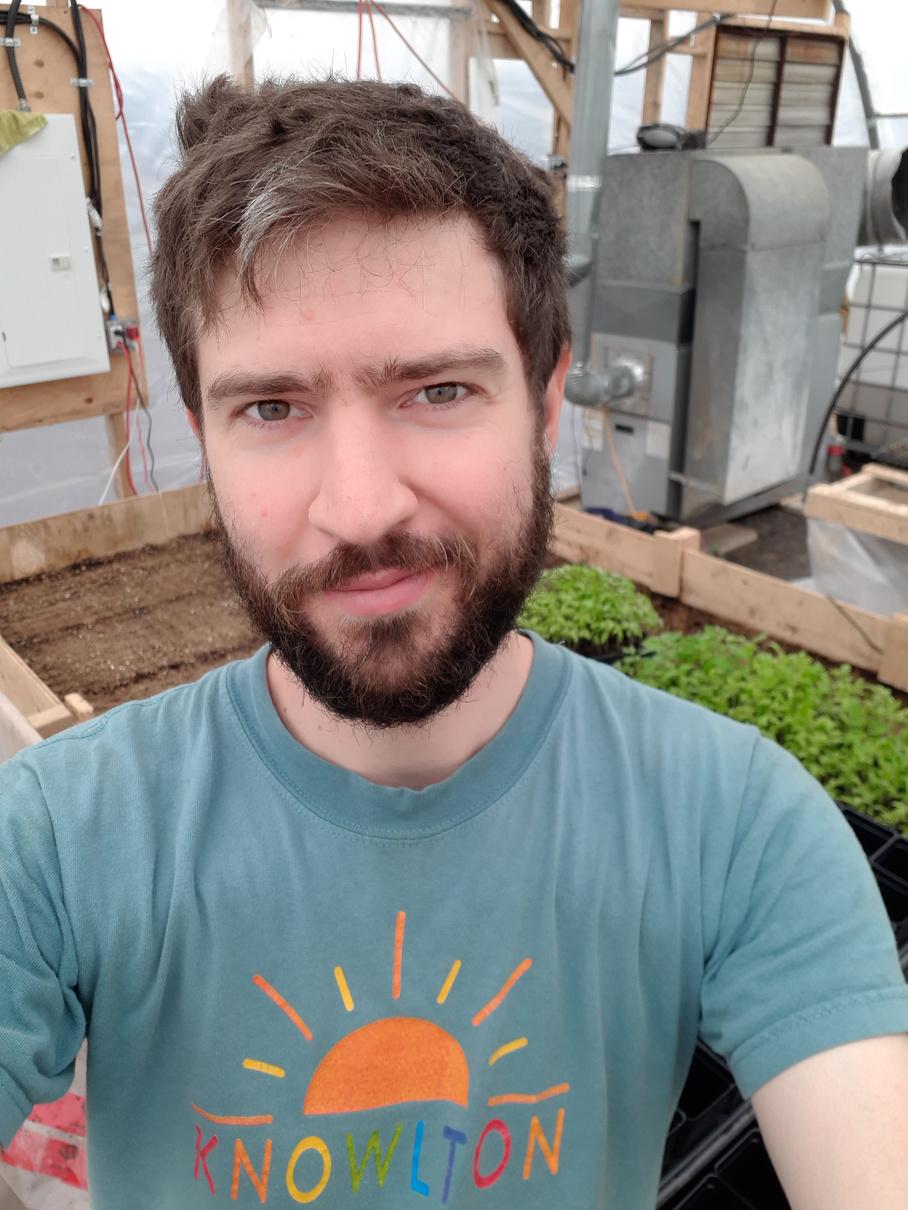
“I wanted a purple bok choi!”
David Whiteside has been working on his two-acre farm, Les Jardins de la Marmotte, located in Bromont, Quebec, for three years.
Growing purple bok choi was his idea. According to David, seed production for this type of leafy vegetable is easy to integrate in his market garden operation. As annuals with a short reproduction cycle for the local climate, it’s possible to produce these seeds fast and in large quantities.
As well, the seeds aren’t damaged by weather because they’re protected by siliques.
“I was inspired by the work of Gwynne Basen from Ferme Abbondanza, who is trying to preserve rare and heritage varieties, and by Dan Brisebois over at Ferme Tourne-sol. Dan has added a lot of colour and diversity in his Tatsoi Arcen-Ciel and his leafy brassicas. I also love Asian greens. They grow when it’s warm or cold, and they’re tasty!”
To read more about these farmers’ seed stories, and many others, click here.
David Whiteside on his two-acre farm, Les Jardins de la Marmotte
SEEDHEADS(HOSTEDBYTHEBAUTAFAMILYINITIATIVE)ISTHECROSSPOLLINATINGPODCASTWHERECANADIANSEEDHEROESTELLTHEIRSTORIES, SHARETHEIR"HOW-TO"TIPS,ANDTALKABOUTTHESEEDSTHEYLOVE.
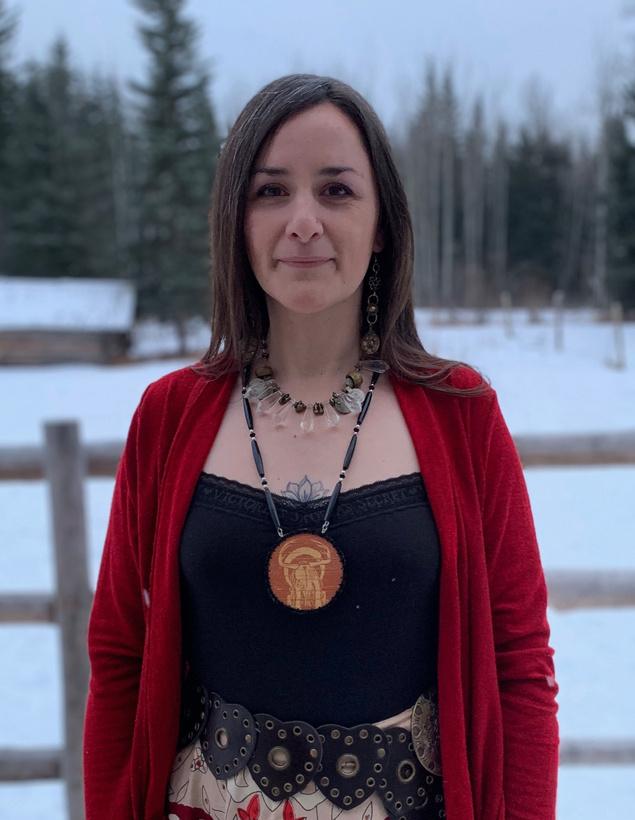
Tiffany Traverse is an Indigenous seed and land steward at Fourth Sister Farm, a guest in the Peace Region of what’s now known as BC, on Treaty 8 territory, homeland of the Dane-zaa peoples. The land she tends is home base for her ongoing exploration of the relationships between seed and heritage, history and self. In this episode, Tiffany talks about the mentors who have helped guide her seed work, the incredible seeds and plants that inspire her reverent curiosity, and the importance of listening and having "uncomfy conversations" in order to heal ourselves, each other, and our food and seed systems.
Listen to Tiffany’s whole episode here.
Click on the button below to listen to more stories featuring small-scale farmers across Canada.
Farmers and seed stewards across Canada create and adapt an incredible diversity of plants through both plant breeding and selection. This work is at the heart of seed security and emerging regional seed systems across the country, and it is vital to sustain climate resilient agro-ecological agriculture.
Demonstration sites act as physical locations where regional knowledge hub activities can take place, bringing together the agricultural community in learning about and celebrating seed.
They are spaces where people can see, touch, smell, and taste varieties of grains and vegetables that have the potential to sustain climate-resilient agriculture in their regions.
These sites provide an unprecedented opportunity to engage the community in learning about the value of farm-saved seed, farmer-led plant breeding, and seed stewardship in organic and ecological farming contexts.
This project is funded in part by the Government of Canada through Agriculture and AgriFood Canada’s Canadian Agricultural Strategic Priorities Program (CASPP), a $50.3 million, five-year investment to help the agricultural sector adapt and remain competitive.
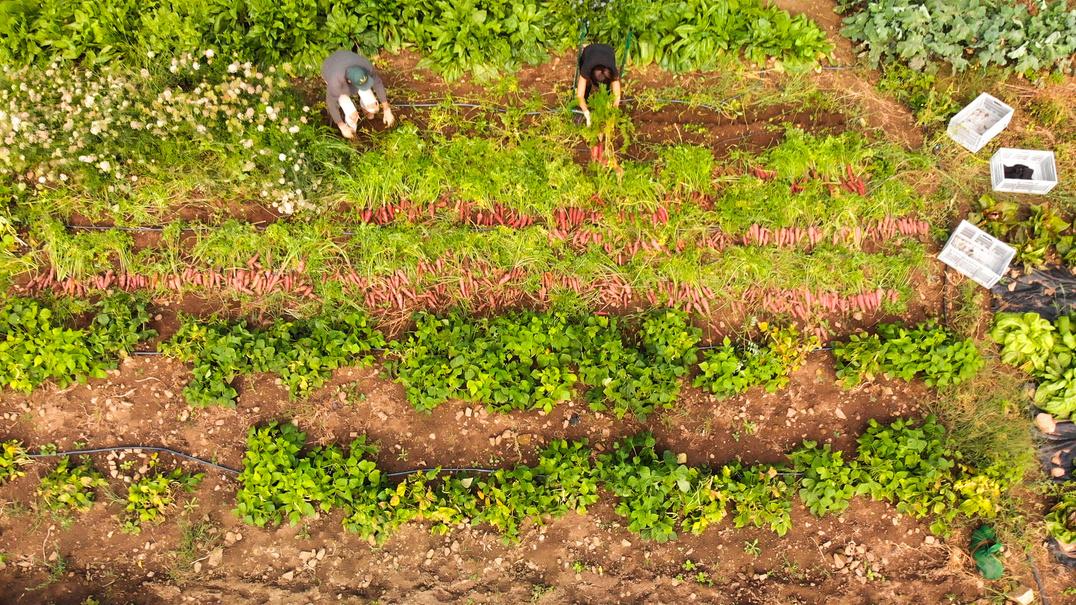
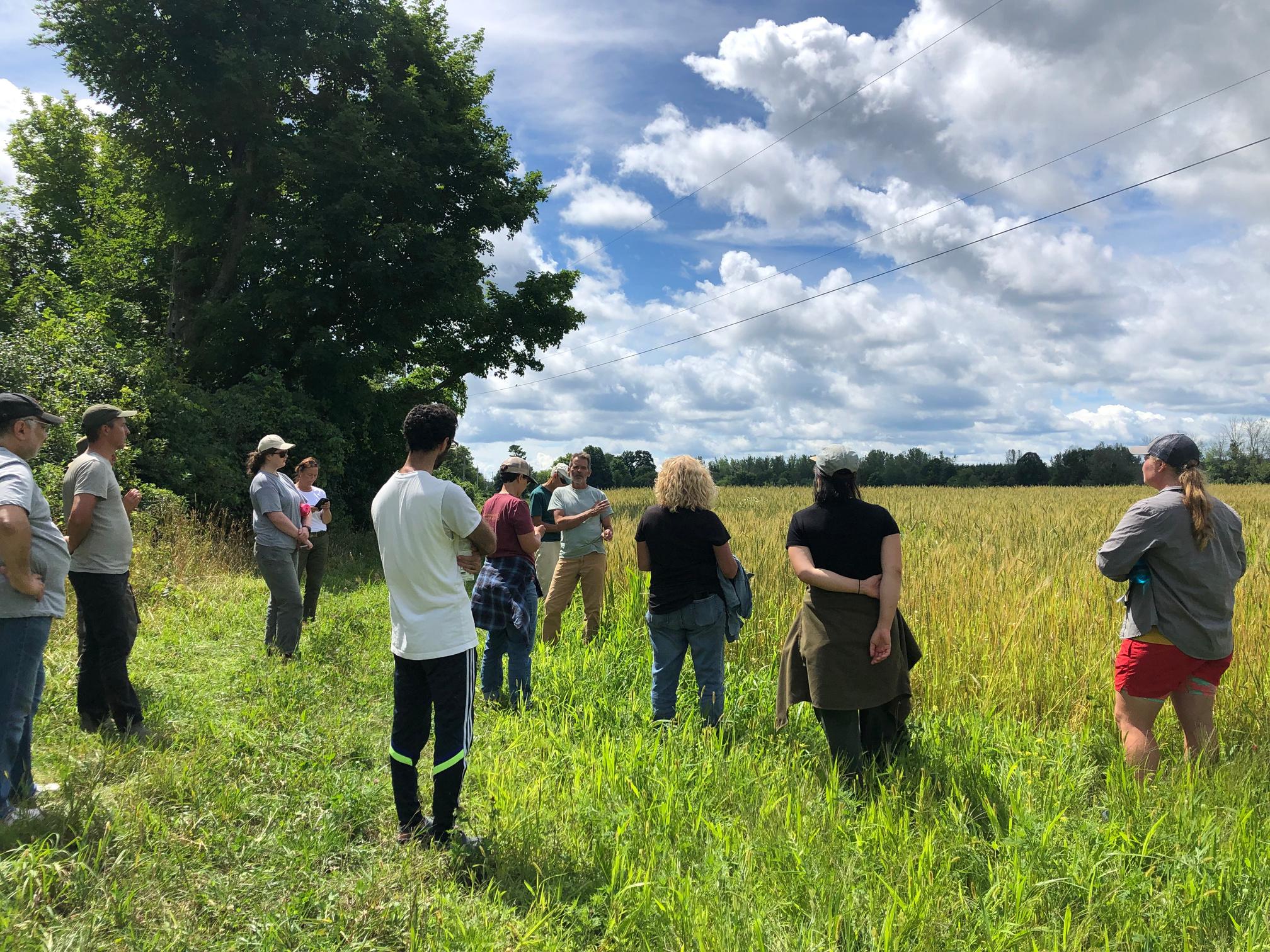
Diversified grain farmer, Chris Wooding, leading a farmer field day on his farm and grain demonstration site, Ironwood Organics, in Ontario.
The impact on Canadian farmers and agriculture is clear.
Together, we’ve grown a network of hundreds of farmers, seed growers, researchers, and partners, committed to advancing climate resilience and seed security. Farmers report that the greatest benefits of the program are: increased knowledge, stronger networks of seed growers, better training and skills, and greater interest and ability to save seed.
1,471 to 7,000+
EXPANSION OF SEEDS OF DIVERSITY’S SEED COLLECTION OF HISTORICALLY SIGNIFICANT SEED SAMPLES BETWEEN 2013 AND 2022, WITH THE BAUTA FAMILY INITIATIVE’S SUPPORT
100+
PLANT BREEDING AND VARIETY TRIALING PROJECTS BEING WORKED ON, ANNUALLY, BY A NATIONAL RESEARCH NETWORK OF FARMERS AND SEED GROWERS, ESTABLISHED BY THE BAUTA FAMILY INITIATIVE
800+
TRAINING EVENTS ON ORGANIC AND ECOLOGICAL SEED PRODUCTION AND PLANT BREEDING IN CANADA
10,000+
PARTICIPANTS REACHED FROM FARMING COMMUNITIES ACROSS THE COUNTRY
95%
OF FARMERS INVOLVED FELT THE ACTIVITIES WERE HIGHLY RELEVANT TO THEIR NEEDS AND INTERESTS
81%
IMPROVED THEIR ABILITIES TO SELECT PLANTS AND ENGAGE IN ON-FARM PLANT BREEDING
$750,000
OF LEVERAGED MATCHING FUNDING ACQUIRED FROM AGRICULTURE AND AGRI-FOOD CANADA TO SUPPORT THE ESTABLISHMENT OF SEED DEMONSTRATION SITES ACROSS THE COUNTRY
“My interest in saving seed has transformed from a side hobby into an important part of my farm business’ identity.”
- BC farmer
“I participated in selecting a wheat cross that performed notably better than conventional varieties in organic trials...a wheat that will be more genetically diverse, and feasibly more resilient in the face of climate change.”
- Prairie farmer
“This program is actually what caused me to start seed saving – fostering an awareness of why this is important.”
- Ontario farmer
“[Collaboration is] what happens when you get a group of farmers together, and researchers… It’s a great opportunity to share ideas and to share our experiences and, ultimately, we’re sharing those [plant breeding] selections with each other.”
- Prairie farmer
“I would say the biggest strength is that the Bauta program is in it for the long haul and when you’re trying to make change, you have to be. And it’s not that common.” - Dr. Martin Entz, University of Manitoba
"The Bauta Initiative is developing alternatives, or farmercentered seed systems. I see that they're empowering farmers to work with seeds on their own farms, whether that's saving seeds or getting involved with plant breeding projects. Or just becoming more informed about how seed sourcing affects the larger system, and how it also affects their farm and their farm security." - Research Partner, UBC
"The way the Bauta Initiative works with partners, I think that's very new to the agricultural sector in a way... They're really about like “Okay, let's work with organizations on the ground, complement what's already happening, build the capacity of organizations” and I think that very collaborative, humble approach is so refreshing and positive and empowering and all this good stuff.” - Ontario Partner



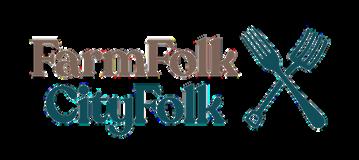

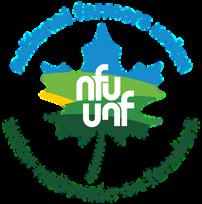




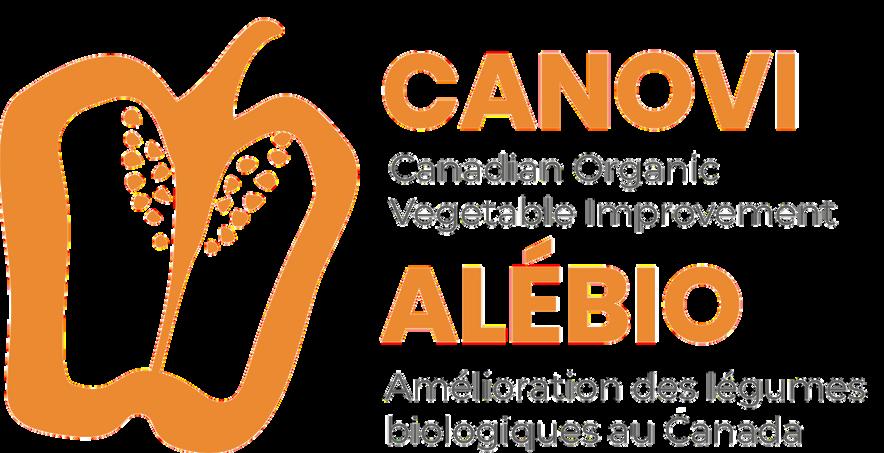






"It was the Bauta Initiative that encouraged and supported me in saving seed for the first time. Since then, they have been there every step of the way to support, train, and connect me with other seed savers/new opportunities/resources. I now grow 75% of the seed I use on my farm, supply seed to my community, sell seed on contract to other regional seed companies, sell my own retail seed packets, and have begun dabbling in breeding. None of this would be true were it not for Bauta. It sounds dramatic, but literally,
the Bauta Family Initiative on Canadian Seed Security has changed my life in a wonderful way."
- Ontario farmer .
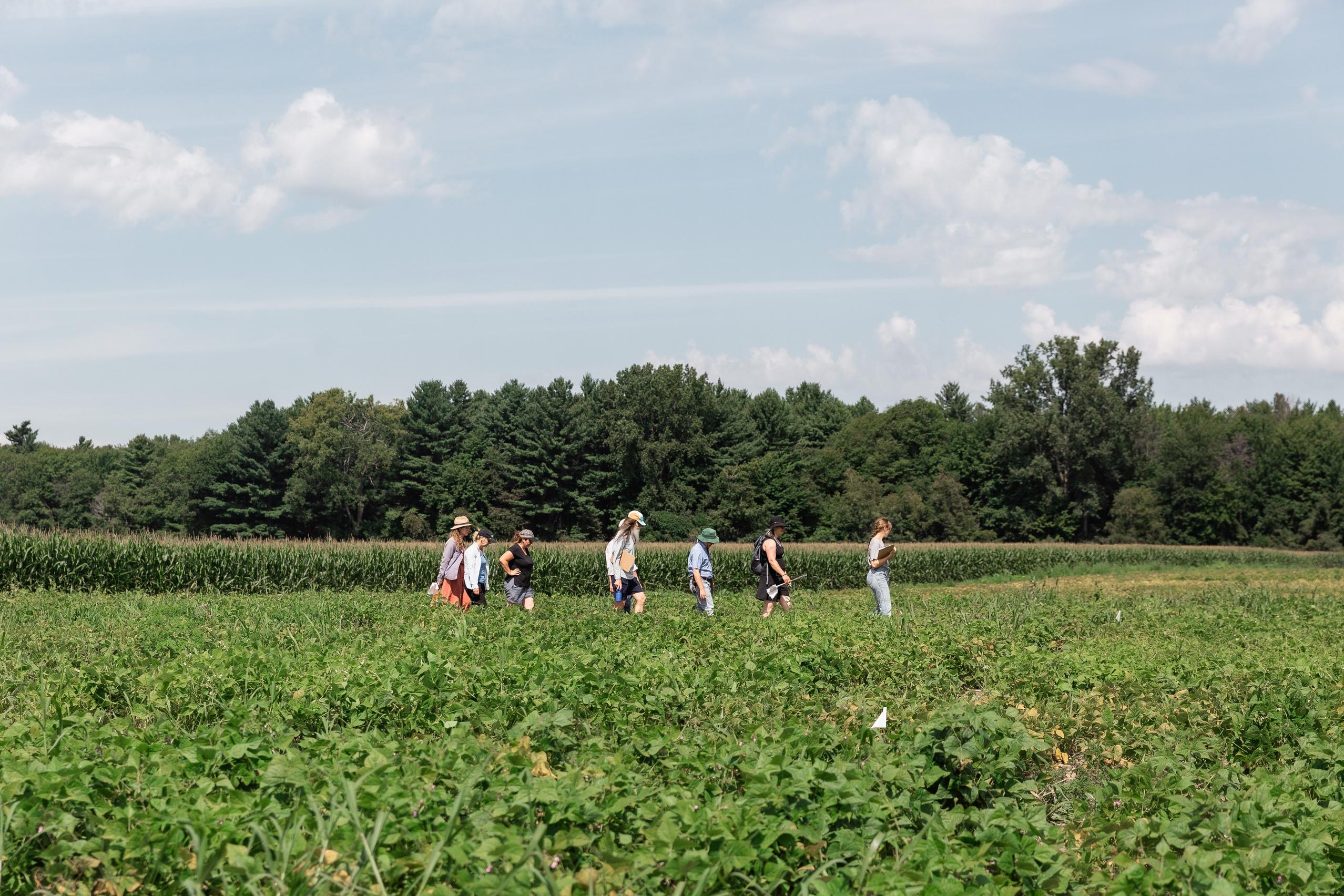
Pulse Field Day, McGill Campus (August 2022)
Farmers, seed savers, and Indigenous seedkeepers have been saving and developing seed varieties long before the start of The Bauta Family Initiative, and will continue to do so long after. We thank those who have laid the foundation for our work, through their passionate saving and sharing of seed, and building of community. We hope that our work supports yours and enables more individuals and communities to contribute to the seed movement in Canada.
For all you have done and all that you continue to do...
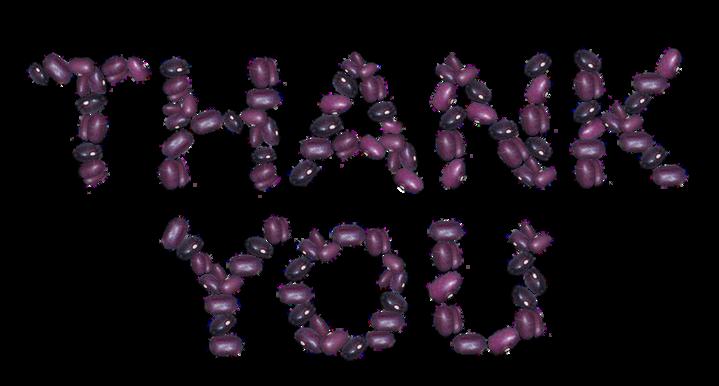
There has been inspiring growth and momentum in Canada’s seed movement since the beginning of this program, as evidenced in these pages. Our hope for the next 10 years is to continue this trend, offering compelling opportunities to Canada’s diverse farmers, and supporting all those who are working towards the establishment of regional seed systems and readily available, high quality, climate-resilient seeds. Ten years from now, we hope that our efforts have been adopted by the farmers and partners we’ve been steadily supporting for the past decade, and that seed work is fully embedded into the farms, organizations, and public institutions that make up and support the agro-ecological farming community in Canada.
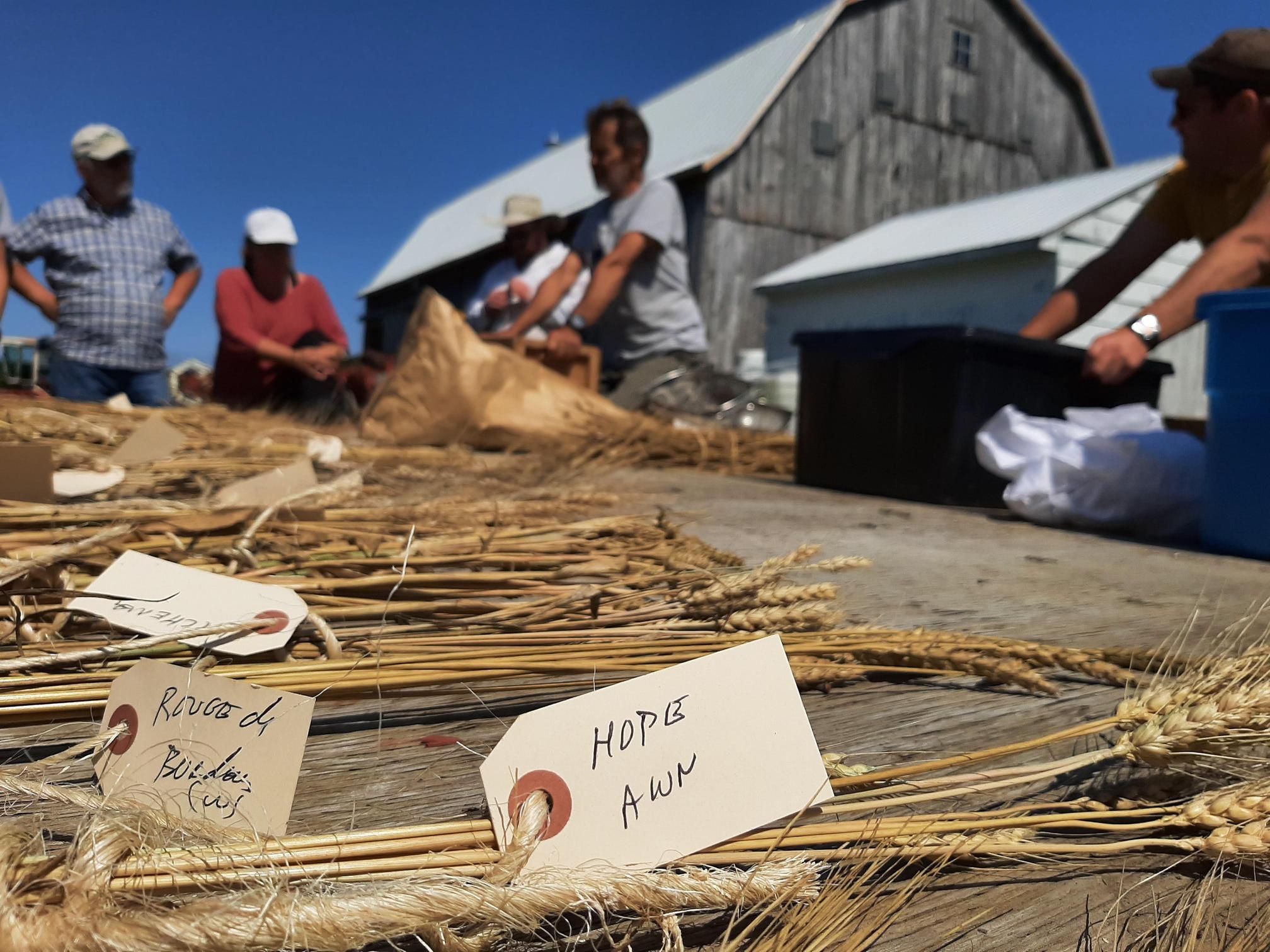 Chris Wooding (Ironwood Organics) showcases the diversity of heritage grain varieties being preserved on his farm.
Photo Credit: Rebecca Ivanoff
Chris Wooding (Ironwood Organics) showcases the diversity of heritage grain varieties being preserved on his farm.
Photo Credit: Rebecca Ivanoff

